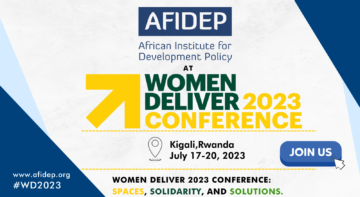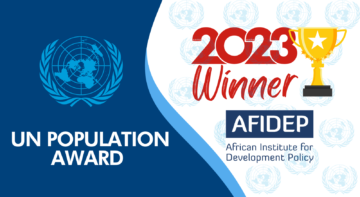News

On March 29, 2015, African ministers and development partners converged in Addis Ababa, Ethiopia to discuss how the continent can harness the demographic dividend for Agenda 2063 through investing in quality education, health, job creation, entrepreneurial skills of young people and empowerment of women and girls.
The conference, which sought to answer the main overarching question “what will it take to harness Africa’s demographic dividend and achieve Agenda 2063?‘, the leaders called on the United Nations member states to adopt policies that will translate the youth bulge into demographic dividends.
Some of these policies and strategies include strengthening entrepreneurial skills and capacity; increasing youth’s access to financial services; promoting decent and well-paid jobs; increasing access to business advisory services and credit facilities; promoting participation in decision-making processes; and supporting the African Union initiative to create a continental framework on demographic dividend.
“The window of opportunity to harness the demographic dividend is time-bound and requires immediate investments,” said UNFPA Executive Director, Dr Babatunde Osotimehin, in his remarks during the Ministerial Dialogue.
Dr Eliya Zulu, Executive Director of the African Institute for Development Policy (AFIDEP), made a technical presentation that provided key facts and data on the Africa population structure, and highlighted what is required to realise the demographic dividend.
Since 2013, several countries have embarked on initiatives to work out the details of what harnessing this potential entails for both investments and policy focus. In doing so, they have started to translate these continental commitments into concrete actions by conducting and launching modelling on the demographic dividend, linked to their own visions and towards Agenda 2063.
Countries such as Uganda, Burundi, Tanzania, Mozambique and Zambia have embarked on programmes that will create and harness the demographic dividend and through it, contribute to inclusive growth, sustainable development and transformation.
Cote D’Ivoire, Burkina Faso, Mali, Niger, Mauritania and Chad are part of a joint UNFPA/World Bank sub-regional programme to accelerate the demographic transition (i.e. reduced fertility and child mortality) and thus to achieve the broader goals of triggering the demographic dividend and reducing gender inequality in the Sahel region.
The Economic Commission on Africa is working with Small Island and Developing States (SIDS) on demographic dividend and ageing in SIDS.
Sub-Saharan Africa has the potential to reap an annual dividend of USD500 billion for up to 30 years if it implements appropriate public policies and investments before or during the demographic transition, said Dr Osotimehin.
With an estimated population of 2.8 billion by 2063, for which over 60 per cent will be under 25 according to this website, Africa’s potential demographic dividend is also especially important in the context of the post-2015 development agenda because today’s African children aged 10 will be adults of 25 in 2030 (the target year for achieving the Sustainable Development Goals (SDGs).
Africa is set to have the largest cohort of young people and their success have the potential to define development trajectories for the continent.
Related Posts





